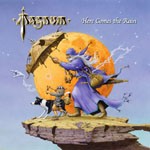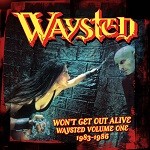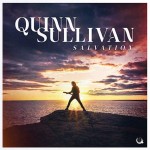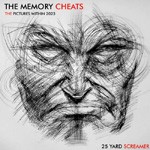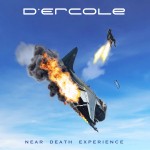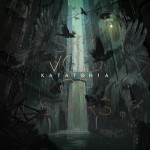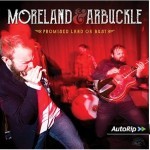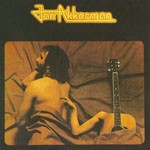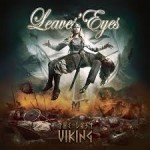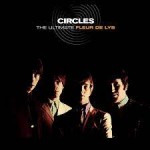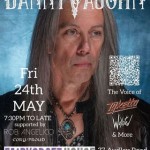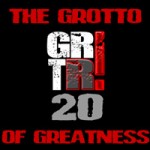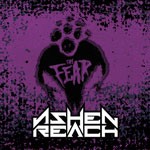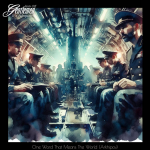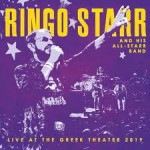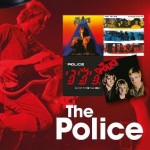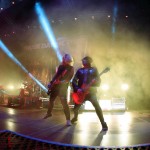I have been involved in the music industry long enough to know that bands with passion and clear musical vision are not lacking in this world. One such band, Metalcore enthusiasts Bring Back Persephone, just so happens to hail from the same area in Athens that I grew up in and that in itself was enough of an incentive for me to pay them a visit. On a typical winter evening, I met with Dennis (guitars) and Kostas (vocals) at a cozy café in Kalamaki and in something like marginally less than an hour I found out all there is to know about their childhood influences, their struggles as an underground Metal band, their hopes for the future and… why Lars Ulrich from Metallica should feel vindicated about his crusade against Napster all those years later!
Interview by Ioannis (John) Stefanis
· Dennis, Kostas let me start by thanking you for taking the time to do this interview with Get Ready To Rock. It is a great pleasure for me to be able to support bands which play with passion and which truly believe in what they do and Bring Back Persephone is undoubtedly one such band.
Dennis (Guitars): Thank you very much for your kind words.
Kostas (Vocals): Thanks mate.
· The band has been around for quite some time now so there are plenty of interesting things to talk about. I would like to start, however, by asking which band posters would one expect to find on your bedroom walls while growing up. I would really like to know which are the artists which influenced you as musicians.
Dennis: The very first image that comes to mind when I think of my bedroom as a teenager is Megadeth’s Dave Mustaine and the guys from Judas Priest. A few years later, when I started getting over this Classic Metal period so to speak, I was very much into Alexi Laiho (Children Of Bodom) and Arch Enemy. Having said that, I am still very much into Ozzy Osborne’s solo work with Randy Rhoads and with Zak Wylde. So it would be posters from these musicians that you would expect to find hanging on my bedroom wall.
· Well, as I am sure you would assume, I was a teenager in the 80s so bands like Judas Priest, Saxon, Black Sabbath, Iron Maiden and Kind Diamond pretty much shaped my taste in music. This is the sound I grew up listening to and the one I continue to support. Back to you, though, can you describe to us when you made that transition from the classic sound of the 80s to a heavier, more modern sound?
Dennis: Well, my uncle from my mother’s side of the family was a typical 80s Metal guy who had his own pirate radio station in the village that he grew up in an he was the one that gave me the first few pieces of vinyl to spin. These were “In Trace” by Scorpions and “Burn” from Deep Purple. He also described in great detail to me all the gigs that he ever attended like the first show that Manowar ever played in Greece.
Now, I know that Manowar are a band with, let’s say, ‘weird’ views on certain things as people but as a band and as musicians the were great. Especially albums like “Hail To England” are for me true masterpieces. Later on, between 2000 and 2005, I started trading music with friends and other people I met socially. This was still the case back then as trading music over the Internet and founding out about new bands was still not that well established as it is today. I remember watching Metallica’s “Cliff ‘Em All” on tape and the feeling was unbelievable. Looking at them performing on big stages around the world made a massive impression on me, made me think that this is what I would like to do as well in my life as a guitarist. Actually, when I first started being involved into music I wanted to become a drummer but because my mother’s nerves were being easily shattered (laughs) I began secretly playing an acoustic guitar in my room.
Then, as I aimed towards a heavier sound I moved over to the electric guitar even though the style of bands like Megadeth was not very easy to get into at that stage. As time went by and I became better I started listening to heavier bands like Kreator and then towards a different sound like the one which characterizes bands such as Arch Enemy and In Flames – especially In Flames…ah, and Dark Tranquillity and At The Gates. I love the extreme Swedish Metal sound as you must have surely gathered. So after investing in the main genres of Metal music, I then started investing in their sub-genres. So, at the time I started Bring Back Persephone, it was Alexi Laiho (Children Of Bodom) and Mike Amott (Arch Enemy) whose sound had the biggest influence on me. In the beginning I was handling both guitar and vocal duties which I think is unbelievable difficult. I mean, I still enjoy doing it from time to time.
Kostas: My involvement with extreme Metal was purely coincidental as, believe it or not, I was not listening to any kind of music as a young boy. It was some time when I was fifteen, sixteen years old that I started hanging out with a guy who listened to Punk and Nu Metal bands at the time. That guy gave me a tape to listen to which he compiled himself and which featured artists such as Marilyn Manson, Korn, Nofx – this type of music. So I listened to it and I was instantly converted.
Korn was my favorite band during the high school years. I remember buying their album “Follow the Leader” (1998) and then, after having been massively hooked with them, I went and bought all their previous records. I remember trying to imitate Jonathan Davis’ voice. That was it; I was hooked with Nu Metal and I immediately started listening to all the bands which were popular at the time. That’s when I found out that it was very easy for me to imitate the voice of all the singers from that scene. Then, together with a childhood friend who played the guitar but who started listening to classic Metal such as Iron Maiden and Judas Priest much early on, we formed our first band together. This was purely a covers band. We played stuff from Korn, Marilyn Manson, Red Hot Chili Peppers, Limp Biskit, Blink 182 and our first show was here in Kalamaki (note: south suburbs of Athens) at the Karolos Koun theater. We used to perform at every national holiday celebrations and during the Christmas and New Year period. That is when I really started to sing and when I finished high school, I looked for other people to play with as me and him followed different paths. That was the period that I started meeting new people an become more socialized so to speak.
At that moment in time it was Metalcore that was on our radars so I would be listening to bands such as Atreyu, As I Lay Dying, Norma Jean, Every Time I Die – investing in the American sound. Me and a few other guys formed a band that was called Dear Darkstar at first and which morphed into The Darkstar. Our sound was influenced by Rock n’Roll, Hardcore – a hybrid of those two.
· So how did you two got to know each other? How did you first come in contact?
Dennis: I knew Kostas since his Dear Darkstar days. He was a well-known figure in the scene and I managed to see them live in the Gagarin Club when they were supporting Nightstalker – another very special and unique band as far as I am concerned. They played this show around Christmas time and I was quite impressed by his very unique style of singing. A couple of years later, when my band was missing a singer and I was handling such duties as a temporary measure. We managed to get a gig as a support band to the American Hardcore band Defeater and at that show Kostas was in the audience.
Kostas: I really liked Defeater at the time so I would not have missed it for anything.
Dennis: After that show, I managed to get hold of him where he used to work at the time, I gave him samples of our work as a band and told him that we were looking for a singer.
Kostas: At that moment in time Dear Darkstar were inactive, we had pulled the plug on the project.
Dennis: I think that the show with Defeater was around 2014/2015 and only a short while later I had this talk with him and we started working together.
· At that moment in time you already had a good ten years under your belt playing music and being involved in the scene and you obviously felt the need to make a step into another musical direction, correct? Which would you say were the attributes you found in Kostas that made him the natural choice for the position of the singer in the band?
Dennis: I strongly believe that there is this pure frontman quality in Kostas which was obvious to me straight away. He had the moves and a very special vocal tone – he wasn’t just a guy with a high pitch voice. As he himself will confirm, he never did any vocal lessons in his life; all he did was breathing exercises to deal with problems he created in his vocal chords by using them the wrong way. That, by the way, was something you could not tell when he was performing live. I believe that the chemistry was right between us and so the decision to have him as our front man was a no brainer. It was the right moment in time, as Kostas also saw things in us that he liked and it happened at a period in his life that he was not involved in other music projects. I mean, he always had proposals to join bands but I believe that I managed to convince him that Bring Back Persephone would be the ideal outlet for him.
· Kostas, which would you say were the elements from the projects you were involved in the past which you added into the music of Bring Back Persephone when you joined?
Kostas: Difficult question…this requires some thought really…as you know I am very much into the screaming type of vocals but these already existed. What I did was to add more emotion into them and in doing so create a good balance between heaviness and melody which is really what I like to do. I believe that my tone when singing the melodic parts of our music is very special and not one that I copied from some specific singer as an influence. This tone has become what it is after years of practice. I am not creating vocal melodies with clear vocals but with shouting ones which is something a tad unusual.
· When listening to both the “Dead Man’s Hand” LP and the most recent songs that you were kind enough to make available to me, the main feeling I got from listening to your style of singing was that the same things that seem to annoy you are the same things that end up hurting you in some ways. It sounds like a need to let of steam in order to cope with really hurtful situations.
Kostas: That is a pretty accurate description.
Dennis: His lyrics also operate in a similar fashion.
Kostas: In my lyrics I speak a lot about things which have disappointed me, which have depressed me. It is really a need to cleanse myself by talking about the things that bother me.
Dennis: Kostas had been through a difficult period in his life at the time when the “Dead Man’s Hand” album was recorded (note: 2019) and the lyrics, even though they operate in pure allegorical terms, they definitely reflect personal emotions & feelings. Our lyrics also reflect social and political issues but to a much lesser extent. Some people may say “how is it possible for an aggressive style of music such as this to offer lyrics capable of making you think or even moving you to tears”? Well, it is possible. I have found myself dropping on both knees by songs which other people find unlistenable. When you know what our lyrics are about and you invest in them you will find that they do strike some special chords. I believe that all types of music are and should be able to do exactly that.
· When I was younger and at a period in time when, for some strange reason, I still felt the need to justify my musical choices to people, my favorite line was that ‘music is my personal psychiatrist’. Well, I am happy to report that it works the same way today as it did thirty years ago. Heavy music offers the type of salvation that less aggressive types do not. That is why you rarely see any fights in Metal concerts whereas all hell breaks loose in other types of festivals around the world.
Kostas: I agree with you.
· Dennis, Kostas told me that in terms of the creation of the basic compositions of the album, I will have to speak with you as you are the main composer in the band. Can you tell us how this album came to life and also explain the dynamics that exist between the members of the band when it comes to creating music? How easy is it, for instance, to have a member of the band offering an interpretation of a part of a song that you, as the main composer, have envisioned differently?
Dennis: Different people react differently to such things I guess. It all depends with how open-minded each person is when it comes to creating music with other people and especially in the area of musical composition. Bring Back Persephone consists of five people with different musical backgrounds, different understandings and points of view – still, when those five people get together to create music, the end result is very unique indeed. This is exactly what happened when we recorded “Dead Man’s Hand”. I may have been the one with all the main musical ideas and the general direction but I always left enough ‘breathing space’ for both our drummer and our bass player to showcase their skills and add their grooves. I mean, I know how to play the bass guitar, for instance, however I am not that skilled so as to have a definitive opinion on how the instrument should be played. Each to their own!
Everyone is responsible for their own parts, they put their best effort and this is what guarantees the best possible result. I always wanted to avoid the trap of us sounding exactly like a handful of other bands who play our style of music. I am not interested in writing a song whose only difference with others occurs by adding or removing a few notes or slightly manipulating a melody. I am not saying that there are no influences from other bands in our music, that is an impossible task – what I am saying is that I am not interested in Bring Back Persephone becoming anyone’s cover band. If you listen to “Dead Man’s Hand” closely, you will find parts which could easily be used by a Black Metal band, many minors that I used, but that style is far from characterizing our music. Other rhythmical parts are so aggressive that are more fitting to the music of a Grindcore band and there are also Prog elements that you would not expect to find in a Metalcore band. Each such element was added depending what each member wanted to add into the mix and also on what each of our songs demanded of us. This is the idea; for my bandmates to help me get our music to the next level. This is a recipe for success.
· The average duration of each song does not exceed the three minute mark. Do you believe that this is the ideal time for any Bring Back Persephone composition to make its presence felt an to not overstay its welcome? Can you guys see yourselves creating a seven or eight minute composition for a future release?
Dennis: I have tried. I once worked on a ten minute composition and it is one that I still keep in the ‘closet’ so to speak. I tried moving on such a direction before but it never materialized. It has nothing to do with whether I feel that a longer composition is tiring to listen to or not. I have listened to a ten minute song which I never understood how fast it went by and I have listened to songs that are less than two minutes long which I never felt the need to listen to again. It all boils down to what each artist wanted to achieve at each given time and how well that came through. Usually I try to make songs that do not exceed the four minute mark as I do not like the idea of repeating things in a composition. I prefer for the listener to listen to the same song from the start over and over again rather than try to fit as many ideas as possible in a single composition. Having said that, you will not find any of our compositions being less than two minutes long.
· Can you imagine a version of the band that would invest more on lead guitar parts, solos and all? I am asking this as there are certain atmospheric parts scattered across the album which were mainly expressed by the use of keyboards and which I found to be very nice indeed. I mean, the fact that you used the services of Scott Danough of Bleeding Through fame suggests that you are not against such an idea, right?
Dennis: Scott Danough is a very grounded person, an unbelievable guy who I always wanted to work with. So I gave him the main song idea (note: “Long Live (not) The King Of Kings”) and asked him to go crazy. He is the one that made Bleeding Through who they are and who create a whole genre with his performances. He stopped performing for a while but now is working again as an extra member. The reason he stopped was because he wanted to start a family and what helped in him making that decision is the fact that Bleeding Through are a criminally underrated in America. At some point they even split up I think. They created what is called Blackened Metal; it was a style which fused elements from Black Metal and Metalcore which I really liked.
I have been in contact with many different people for the purpose of participating in our songs, those we already released and those which we plan on releasing in the future, and he is one of those people that asked nothing in order to participate! He simply took the recording, performed his parts and sent it back to us. Our lead guitarist is a very capable person – a person that literally grew up inside music schools (note: Apostolis Trigazis). I am basically a rhythm guitar player. I never managed to get to the level of Alexi Laiho on the lead guitar even though I did want to but the truth is that I didn’t study as hard as it was needed. This role has been taken over by Apostolis who offers most of the melodies and the lead parts in our songs like “Route 66” which is one of the longest Bring Back Persephone compositions so far recorded. We both perform solos in this song actually and that will be the case in a new composition which we plan in releasing now called “Darkstar” where we have invested in a break half way through the composition which will allow both of us to perform a guitar solo. So, we incorporate a lead part only when we feel that the composition demands it, when we feel that its suits what we are trying to do and we like it. We are not one of these bands which features one really talented player and that everything revolves around him. We would never have a player of the ability of Nuno Bettencourt (Extreme) in the band, regardless to how much I like listening to him.
When the latest Extreme album came out what Apostolis and I were really looking forward to was to listen to the guitar solos. Anyhow, in the song we just finished working on the plan is to have one more guitarist performing a solo, so you will have him, Apostolis and I offering a solo. That was simply because there was the need for such contributions in this composition. We were in talks with Tony MacAlpine who is another exceptional guitar player and also a pretty down to earth person. So everyone will be looking forward to listen to this song just to see what this man has contributed to it.
· And what a great promotion for the song that is.
Kostas: Undoubtedly.
Dennis: He is a true virtuoso. Again, the participation of someone will depend on the need of each composition. The same-titled composition of the album that’s entitled “Dead Man’s Hand” started life as an acoustic composition, something which is very unusual for us as a band. Our current compositions will feature quite a few synth & choir parts.
· I am very happy to hear that you have chosen to invest more in such themes as I believe that these themes add so much in your compositions.
Kostas: Exactly. These themes lift the melodies even more.
· And makes your music more accessible to people without risking undermining the band’s character. Such elements will attract people who are not what you describe as the traditional Metalcore fans. I guess that you are very lucky in the fact that you are active in these times and not say the 80s where styles and genres were clearly defined and cross-pollination in music was totally out of the picture.
Dennis: That is so very true.
· This question is for both of you as you are both responsible for creating compositions. When you work on a composition, when and how do you know when it is the right time to stop investing in it? Which are those signs which indicate that it is time to finally ‘let go’? I remember once talking to Jeff Waters from Annihilator who is, of course, an exceptional artist who pretty much admitted to having issues letting go in that respect.
Dennis: I don’t believe I ever had such a problem as far as the album was concerned. Whenever I felt that a song would finish in a certain way, and after I finished working on the synth parts or the lead parts, there was a time when I was burned out as far as that specific composition was concerned. That is when I started thinking about the next idea, the next composition in order to offer my brain some rest. It could be that I wrote a song three or four years ago and to add to it a melody after all that time. So, normally whenever I feel tired thinking of a certain composition that is when I stop – either that or I put it aside so as to look back on it at a later time. If, after that ‘grace period’ so to speak I have no new ideas to add to the composition then I stop and I pass the composition over to the rest of the band to add their ideas into it and provide a feedback. This is the best way to work; when everyone is included in the process and there are no egos involved then the end result is always very rewarding.
· Kostas, if someone was to ask to you single out one of the songs from “Dead Man’s Hand”, what would that be and why?
Kostas: I will choose two compositions as the ones which best characterize the music of Bring Back Persephone. The first one is “More Than Life” and the other one is “Good Morning Failure”. These songs showcase the types of melodies and emotion that we like to invest in as a band.
· “Good Morning Failure” is one of the songs which also stood out in my opinion and pretty much for the same reasons.
Kostas: This is my ‘number one’ song at the moment. “Route 66” is also a great song but it was created earlier on and we added it as a single in the album. “Route 66” is almost like an intro to “Good Morning Failure”.
· I believe that “Old Maui” was the first song of the album that really caught my attention and that was instant. While it normally takes a few good spins before I start getting connected to an album, this song won me over in no time.
Kostas: “Good Morning Failure” is a much simpler song, especially in comparison to “Old Maui” which demands your attention prior to revealing its secrets to you.
· I am a big fan of progressive music in general so perhaps my brain operates differently when in contact with more ‘demanding’ compositions so to speak.
Dennis: Some of the people I talk to say that they don’t like it when they find many similarities between songs of the same album and others are absolutely fine with that. I was never interested in creating albums whose songs have a connection between them. “Old Maui” is much different than “Good Morning Failure” and “Route 66” is much different to the rest of the songs of the album.
Kostas: The one that is massively different is the one with the most Grunge elements to it.
Dennis: Are you referring to “Byronic Hero”? When we were recording that song the producer told me that the very first riff reminded him of Nirvana.
Kostas: I do think that it stands out from the crowd.
Dennis: Indeed. I never thought that an influence from Nirvana will appear in any of our songs; not that I was never a fan of theirs but I never listened to their music so much in order to expect their influence to appear in a composition of ours. “Old Maui” is more influenced by classic Heavy Metal, especially its slow parts and that comes across to people. That is when you appreciate the positive feedback we receive from the fans. I always like thinking outside the box when it comes to creating music and that reflects also in the way I listen to music. I may listen to Nirvana in the morning and Immortal in the evening.
· I really sympathize with your approach to music, I really do. I also believe that it is impossible to keep everyone happy with the musical decisions you make. The only person you need to stay true to is yourself.
Kostas: Exactly.
· Prior to the album you had released you released two Eps on 2015 called “Years Of Suffering” and “Revival” and there is also a single called “Coupe De Grace”. Have these ever been released in physical format?
Dennis: No. At the time these releases came to life we were both very underground and very underrated. We still have problems getting in contact with record labels for the purpose of promoting our work. Our album was released with the help from a record label that’s located in
France. Well, everything about the creation of the album was handled by us; the label only really handled the distribution in collaboration with a label in the US. In the case of “Revival” the label involved only really invested in the digital format. I am really hoping that we will be able to bring out physical format releases as there are twenty five, twenty seven songs that we have created either as singles, as records or as EP’s. It would be nice to make all this work available in physical format at some point.
· Another interesting fact is that, for a band that has only really released one studio album, you have tons of videos made to promote your work. This of course suggests that you believe in the ability of the music video to bring your work to the masses. These videos are very professionally made as well which is to your credit. Having said that, these videos must have cost a fortune, right?
Dennis: Yes indeed. A very good friend of ours who is also an artist said that if a German, Swedish or Norwegian band need to give a 10% effort to make it to the next step in their evolution, a Greek band needs to give 110% to achieve the same thing. By writing our lyrics in English we are clearly targeting an international audience so I always made sure that the quality we give in our work matches that of bands from abroad. So, seeing as we believe in our work and we are willing to push things as much as possible in terms of getting heard, we will need to place similar effort in terms of the music production, the videos and the artwork we use. The guy who did the artwork for “Dead Man’s Hand” (note: Dave Quiggle) made something really special for us, a work entirely made by hand. He had done many projects for Disney and has created artwork for many well known bands such as Atreyu, he has done posters for the Foo Fighters and even though employing his services was a bit expensive it was worth it.
Right now we can claim to have an album that is not made only on digital format or by AI which is very popular at this moment in time. You can put this record right next to those created by bands that are way more popular than us and still not be afraid of the comparison. We are also very proud of the work done in the mixing of the album as we feel that Henrik Udd, who performed mixing duties for Arch Enemy, Dimmu Borgir, Architects and Bring The Horizon just before he started working on our album, did a great job. The video for “Good Morning Failure” was filmed in England by a person that might not have been that well known but who managed to give it the atmosphere that we wanted.
· According to your press release, the years 2013 and 2014 would find the band making new songs available for your fans. It’s now been seven years since the release of “Dead Man’s Hand”. Are you considering releasing another full length album or will you be taking again the path of the singles and EP’s?
Dennis: The truth is that because of the times we live in, because of iTunes, of Spotify and the way the Internet operates you have more than fifty records coming out every week from all types of bands, big or small and that means that the scene is oversaturated. We would love to be able to release a new album every year. Going into the studio is the one thing that I love doing the most! Same applies to performing live but each environment offers different but equally enjoying experiences. It’s a different feeling you get when you enter the studio to record new songs and another when you perform your music in front of people. We really enjoy them both equally.
Five months ago, Shawn Crahan from Slipknot, when asked, stated that his band was not thinking about releasing a new album but to only release singles and videos as this is where the future lies. If bands as massive as them think that way then what should much smaller bands such as ourselves think and do? After “Dead Man’s Hand” was released we had the whole COVID pandemic to deal with and that took as back a good two years. Imagine that the last live show we did was ten days prior to the first big lockdown supporting the UK Hardcore band Polar. Since then we have not performed any gigs and because of that we thought about making our presence felt by releasing a few new songs as singles so as to help establish how we wanted to evolve both musically and stylistically. So, there are two singles we released in October & December 2023 and there are three more which we plan to release during 2024.
We deliberately worked with various different people as a test to see which will be the ones that will help us bring our next big release to life. This will be either an EP of several songs or a full-length album. That will also depend on whether we will be able to find a record label willing to support us in our quest – something that, as I already explained, has always been a very difficult thing for us. We have sent samples of our work everywhere. We had a few offers but nothing really interesting as the labels themselves have very small rosters these days. So, if after the release of these five singles we manage to get a deal with a record label then we will proceed with the recording of a new album – if not, we will aim towards releasing an EP by ourselves and we will see what happens next.
· This really begs the question; if record labels nowadays are a shadow of their former selves and a band cannot rely on the sale of the physical format for its success, economical or otherwise, then why bother releasing one? You guys are very professional in handling things yourselves so why would you need them? Just to take advantage their distribution network?
Dennis: For better or worse, depending on whether a band’s major market is located either in America or Europe, a record label has all the right connections to help promote the band’s work. They can bring you to the attention of music store owners, they can create a combo with other bands and get you out on tour, they have the means to do proper advertising. This is not something that we can do to the same extent.
One of the earliest songs that we made to which I performed the vocals, a song called “Ferocious Desolation”, when it was given to our record company to promote digitally, the song reached an impressive level of views whereas “Route 66”, which is a much better song but which we released as a single ourselves, had less views in comparison. If a label like Nuclear Blast picks up one of our songs and promotes it in its online platforms the band’s advertising power will most certainly reach another level. Unfortunately that is how the system works. So most bands, whether they are big or small ones, they either create their own labels or they cooperate with the already established ones. This is a vicious cycle which is never ending but has only really changed its structure in order to cope with the new era. If we were an 80s band, we would only really have another nineteen bands in Athens to compete against and getting in contact with record labels, even if it meant sending samples of our work by post to labels abroad, would have been much easier. We would most likely even receive money from the label to record our work which is certainly not the case now.
Now that everything is available for free and all that’s required is a minimal subscription in a minimal subscription in Spotify to access music…actually Spotify has destroyed everything as far as I am concerned and I believe that Lars Ulrich (Metallica) was actually right when he stated that fact back in the day.
· Who would expect that Lars Ulrich would become vindicated for his views one day?
Dennis: People were calling him names back in the day and accused him of doing everything for the sake of money but had he achieved his goal when taking on Napster back in the day then we would not end up giving our music for free now. You now, you can have a person listening to your songs all day in Spotify and us not getting even ten cents from that. Spotify offers one cent for every two thousand or something plays. Gary Numan said that his 80’s hit “Cars” had twenty million plays and what he got from Spotify in return was twenty British pounds! Now if Gary Numan has such problems then imagine what a band of our level can expect in return!
Kostas: Instead of expecting to get any money from this we will only expect to keep giving. We will need to pay people in order to get our songs to be heard, pay YouTube money to make your videos available…if you don’t have a label to do these things for you, all you will end up doing is spending your money. How many bands are able to record and mix their songs by themselves in the studio? And then, what about the mastering process, the album cover, the video, the whole issuing of the CD in a physical format? The costs are enormous.
· Which really begs the question; if the obstacles are so many, why bother doing this? Why not just get together with your mates to play in the studio and leave things there? What is it that motivates you enough to keep fighting this pretty uneven battle?
Dennis: I believe that in every style of music including our own, whether its Rap or Pop music, the recording artist has to operate as if he or she is building a store. You cannot build a shop from scratch without using a decent budget and expect to have decent returns from it. This is something that many bands fail to understand; a simple homemade recording done for free and a video made by AI, again for free, will never help you get in front of a large audience, will never allow you to perform on a big venue or to make a music career for yourself. This is simply not possible! This could not happen back in the old days when some of these things were easier to do so it will not happen now. Many great artists, some of whom are no longer living, stated that had they been new in the business nowadays they would really struggle to achieve success.
Take Paul Gilbert, Steve Vai…all those great guitarists and artists who are being revered today would simply struggle to make ends meet. The first heroes of this scene which were Bring Me The Horizon achieved things but had the support needed and they are British which is important as the Brits treat music as a proper industry. Just as they produced British steel back in the day and exported it to the world this is how they export music. Same applies to Sweden; there was a funding program by the Swedish government which helped so many artists to become better at what they do and evolve which was much better than having groups of your kids wondering on the streets doing nothing. This resulted in the creation of a whole new genre of music that people around the world support and respect. Greece has always been many steps back when it came to such things. We had to have COVID for the government to create a healthcare department for artists to reply on and that is more than two thousand years since we offered the theatre to the world! All artists in Greece, regardless on which area they operate, are all facing the same problems and so they all need to invest the same amount of money someone would if they were investing in their own shop. Nothing will ever be achieved for free! This is why you have massive bands such as Fear Factory being unable to tour extensively, because the costs involved are unbelievable! Imagine how difficult it is for local underground bands to do so, when the big labels ask for money for the privilege to add them on tour.
· Talking about live shows, are there any gigs lined up for the future?
Dennis: Yes, we are making various efforts in that respect. We are hoping to do some shows around March or April in Athens, Thessaloniki and even Sofia in Bulgaria…perhaps even do a show in Romania if we manage to book it. From October onwards we are hoping to do a small tour. We do not yet have any specific dates but we are confident that we will manage to book these shows.
· Guys, I believe that I have covered all that I planned in terms of this interview. I would like to close this interview with a wish to have all your plans fulfilled. It is very obvious to me that you are passionate about your music and people who are passionate about their work should always be rewarded. I hope that you’ll manage to find a worthy collaborator in a decent record label to help you achieve your goals and help you make the next big step as a band – to bring things to the next level!
Dennis: Thank you very much!
Kostas: Thanks mate.
Featured Artist: JOSH TAERK
Since early 2020 Josh has been entertaining us with exclusive monthly live sessions, streamed via Facebook.
In 2023 he signed a recording deal with Sony in Canada and released a new single on 15 September.
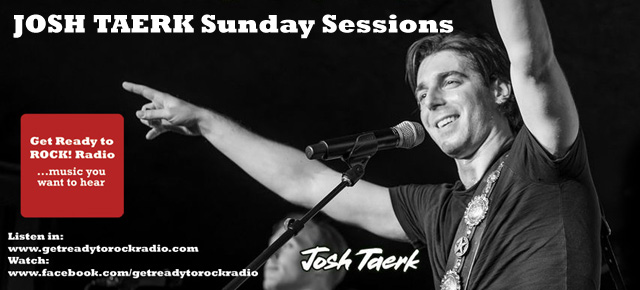
Latest session: Sunday 14 April
Check out videos here: https://www.facebook.com/getreadytorockradio
David Randall presents a weekly show on Get Ready to ROCK! Radio, Sundays at 22:00 GMT, repeated on Mondays and Fridays), when he invites listeners to ‘Assume The Position’. The show signposts forthcoming gigs and tours and latest additions at getreadytorock.com. First broadcast on 7 April 2024.
UK Blues Broadcaster of the Year (2020 and 2021 Finalist) Pete Feenstra presents his weekly Rock & Blues Show on Tuesday at 19:00 GMT as part of a five hour blues rock marathon “Tuesday is Bluesday at GRTR!”. The show is repeated on Wednesdays at 22:00, Fridays at 20:00). This show was first broadcast 2 April 2024.
How to Listen Live?
Click the programming image at the top of the page (top right of page if using desktop)
Listen via Windows Media Player. Click or tap here and “open file”
Listen via other media player (eg. VLC) Click or tap here and “open file”
Get Ready to ROCK! Radio is also in iTunes under Internet Radio/Classic Rock
Listen in via the Tunein app and search for “Get Ready to ROCK!” and save as favourite.
More information and links at our radio website where you can listen again to shows via the presenter pages: getreadytorockradio.com
Power Plays w/c 15 April 2024
ENMY The Ledge (FiXT)
KAROBELA Get Hard (indie)
KATH & THE KICKS Neptune (indie)
THE BEE TELLERS River Poem (Black Sand Records)
LAUREN FREEBIRD Like A Bomb (indie)
Featured Albums w/c 15 April 2024
09:00-12:00 The Best of 2003-2023
12:00-13:00 The Best of 2003-2023
14:00-16:00 KATARINA PEJAK – Pearls On A String (Ruf Records)
To see our Tweets you need to be logged in to a Twitter account

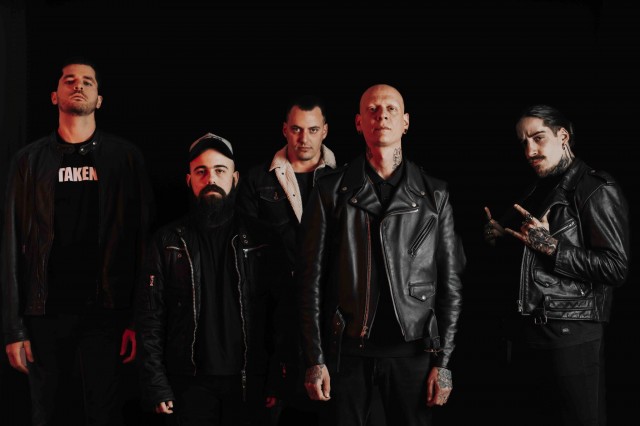
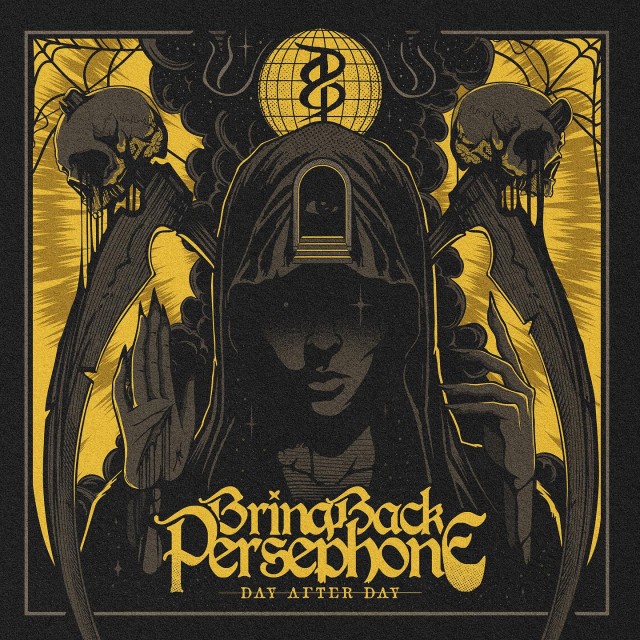
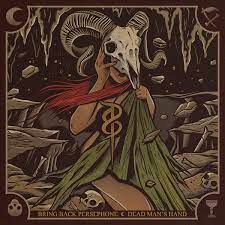

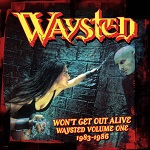
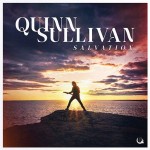



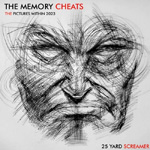
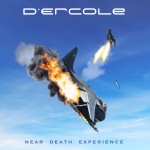

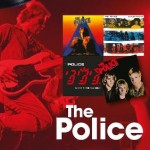
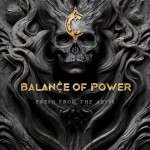
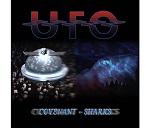
 PDF - you can delete unwanted sections
PDF - you can delete unwanted sections